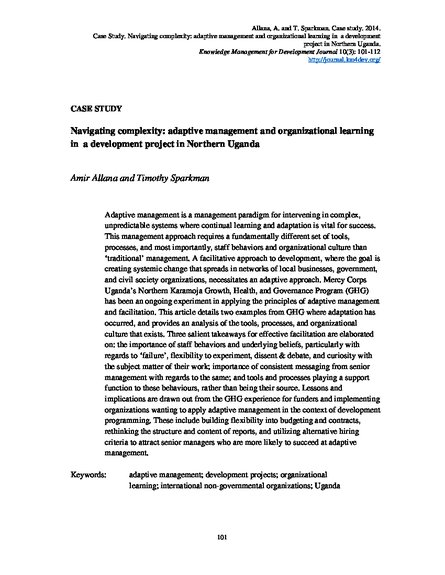
Adaptive management is a management paradigm for intervening in complex, unpredictable systems where continual learning and adaptation is vital for success. This management approach requires a fundamentally different set of tools, processes, and most importantly, staff behaviors and organizational culture than ‘traditional’ management. A facilitative approach to development, where the goal is creating systemic change that spreads in networks of local businesses, government, and civil society organizations, necessitates an adaptive approach.
Mercy Corps Uganda’s Northern Karamoja Growth, Health, and Governance Program (GHG) has been an ongoing experiment in applying the principles of adaptive management and facilitation. This article details two examples from GHG where adaptation has occurred, and provides an analysis of the tools, processes, and organizational culture that exists. Three salient takeaways for effective facilitation are elaborated on: the importance of staff behaviors and underlying beliefs, particularly with regards to ‘failure’, flexibility to experiment, dissent & debate, and curiosity with the subject matter of their work; importance of consistent messaging from senior management with regards to the same; and tools and processes playing a support function to these behaviours, rather than being their source.
